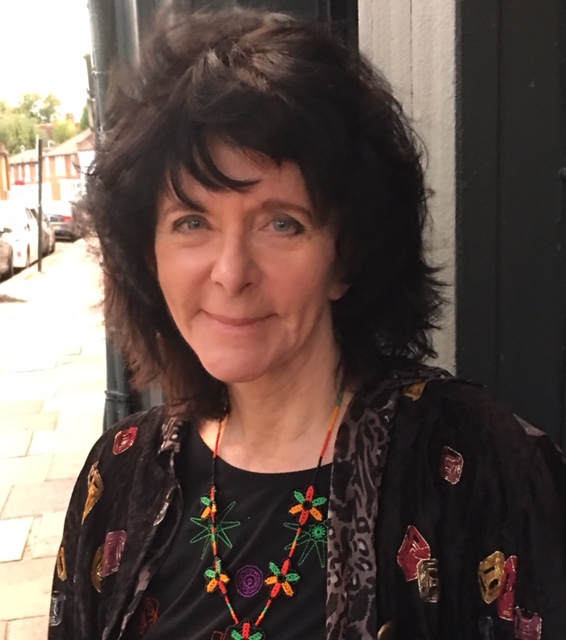
Ruth Padel
The Poem and the Journey : 60 Poems for the Journey of Life
‘As a writer, you would probably choose Ruth Padel as your ideal reader. She seems able to tune into the silent music of text on the page. She is rigorous and true to her sense of criticism but also a generous reader, prepared to enter the spirit of a poem.’ Simon Armitage
‘A wonderful, much-needed book on the journey of meaning. She makes it fun. allowing us the dramatic experience of the poem meeting our own lives. You want to open it each day for another revelation’ Fiona Shaw
Like 52 Ways of Looking at a Poem, this book, published in 2005, is drawn from Ruth’s pieces for her newspaper column on reading contemporary poems.
The book, like Ruth’s suggested image for the experience of reading a poem, is structured around the image of the journey of life.
Ruth offers a fascinating introduction on reading poetry, and discusses sixty contemporary poems, written by a very wide range of poets, as examples of the ways in which poetry can accompany us throughout our lives and illuminate each stage of the journey.
From reviews:
‘This vivid, illuminating book, so clear, passionate and inviting. opens many pathways for the reader of contemporary poetry, bringing to bear on it not only current thinking but the whole world of the past.’ Gillian Beer
‘Lively, lucid, accessible and probing: an enlivening, illuminating book,’ Times
‘Brilliant – an unpretentious defence of poetry of a kind I have been waiting a long time to read.; Peter Forbes, Independent
‘A passionate, generous, likeable piece of work: appealing, impressively focussed, of particular value to students.’ Andrew Motion, Guardian
‘The ideal guide… Her beguilingly informal style entertains and informs. Her training as a classicist, and her learning, always lightly worn, bring a convincing authority to her arguments. She is never lofty, nor condescending, nor a show off. Padel is the ideal travel guide.’ Catriona O Reilly, Irish Times
‘A remarkable book of exquisite receptivity, a scintillating master-class in how to read the best living poets. Her aim is not so much to put together an anthology of “the best”, but to teach her readers, by example, how to read; and, on the way, to encourage aspirant poets.
Highly accessible, yet acutely penetrating, this is a book that should be placed in the hands of every young person studying literature in the English language, both sixth form and university level, as well as poetry-lovers of every age. It is an entire education in itself.
Buy this book, give it to your friends, and keep a copy for yourself to remain permanently at your bedside. It is a poetic treasury with commentaries and meditations that will open, and incline, your heart and mind again and again.’ John Cornwell, The Tablet
‘She argues that poetry is vital and transforming. After reading this, you won’t only agree, you’ll see it as much less intimidating, too.’ The Metro
‘A thoughtful Introduction on how to ‘read’ poetry, followed by sixty examples of this process drawn from a wide range of contemporary poems. The overall structure follows the arc of a journey, not just any journey, but the ultimate: the journey of life, with these sixty poems to accompany us. So the poems move thematically from our first tentative steps – perhaps a dream which nudges a reluctant traveller in the right direction – to that long-awaited rest at the end of our journey, otherwise known as death.
The Introduction is fascinating and highly quotable, awash with sound-bites on poetry and superbly apposite quotations from the great and good. I love some of her free-association moments in the Poems section, and those delicious revelations that close reading brings.
She admits that personal taste is a factor in this process: ‘There will always be poems you don’t like, however ‘good’ they are as poems.’
Padel tackles a broad swathe of poems in this selection with excellent sang-froid but her own tastes cannot be entirely concealed. Thus Padel on Geoffrey Hill’s ‘Mercian Hymns VI’: ‘The voice flings linguistic treasures down as if language itself were the gnarled mysterious landscape it describes.’ On Peter Reading: ‘His poems can look as rebarbative as a litter-strewn street.’ On free verse: ‘Structure is created, above all, by the poem’s movement.’ On bad poetry: ‘Words that do not mean are cellulite.’
She interestingly describes poems as ‘portable altars’, with all the spiritual associations that brings. This is to underline their intimacy and small-scale appeal, condensing ‘the whole world in a little space’. To me, it also suggests something hurriedly unfolded at the roadside, of practical as much as spiritual use, never intended to be worshipped at with great ceremony and an HB pencil. One major poet not represented here, Ted Hughes, wrote of ‘the magic baggage old men open/And find useless, at the great moment of need’ (‘Gaudete’).
If we look to a poem for explanations, we are sure to find nothing but our own inadequacy. Confident in her method, Ruth Padel insists ‘Good poems can light a dark moment, give you something to hang on to.’ Along this scenic but unpredictable journey through contemporary poetry, her book might achieve something similar.’ Jane Holland, Tower Poetry
